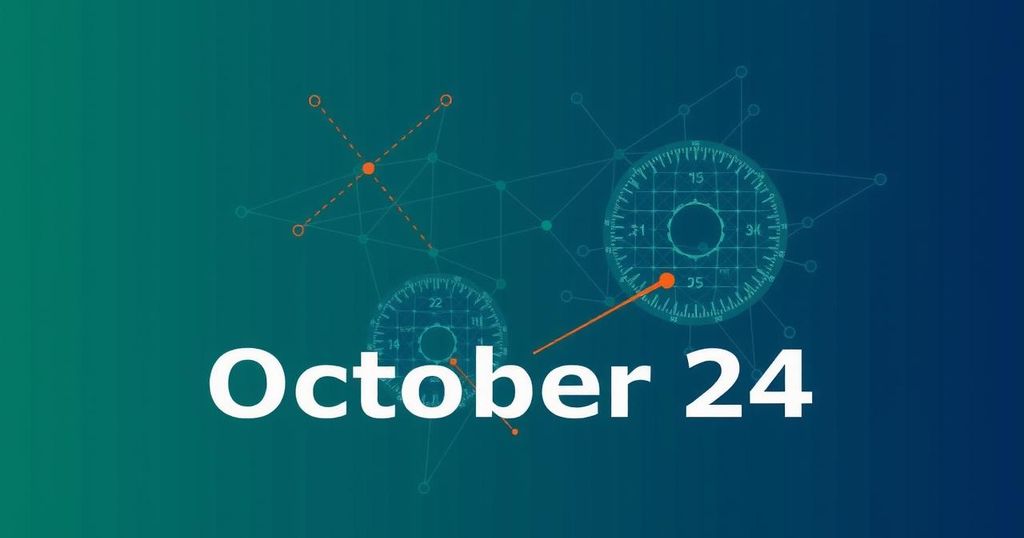Key Updates for October 24: Political Landscape, Military Movements, Labor Strikes, Cybersecurity Threats, and Natural Disasters

This article outlines five major news stories relevant to October 24, including Vice President Kamala Harris’s remarks on Donald Trump’s politics, the arrival of North Korean soldiers in Russia, ongoing strikes at Boeing, Iranian hackers probing U.S. election systems, and the devastation caused by Tropical Storm Trami in the Philippines.
In contemporary news, several critical developments have arisen. Firstly, in the realm of the presidential race, Vice President Kamala Harris unequivocally labeled former President Donald Trump as a fascist during a CNN town hall, as she addressed diverse issues concerning undecided voters in Pennsylvania. Harris expressed her commitment to fostering bipartisan cooperation while advocating for a new generation of leadership. In juxtaposition, Trump continued to campaign actively, denouncing Democratic candidates amidst fluctuating national polling results that indicate no clear frontrunner for the upcoming election. Secondly, concerning North Korean military involvement, approximately 3,000 North Korean soldiers have reportedly arrived in eastern Russia. This movement has sparked significant concern among U.S. officials, particularly Secretary of Defense Lloyd Austin. Although it remains uncertain what these troops will engage in, there is apprehension about their potential involvement in the conflict in Ukraine, especially as U.S. officials prepare a substantial financial aid package for Ukraine backed by seized Russian assets. Thirdly, Boeing is experiencing ongoing labor disputes, as around 33,000 workers are continuing their strike following a rejection of a damaging contract offer by the International Association of Machinists. The refusal to accept the deal, which was turned down by 64% of vote participants, reflects a strong demand for the reinstatement of traditional pension plans that were previously forfeited under the company’s threat of relocating jobs to non-union sites. Industry analysts project that the strike is costing Boeing an upward of $1 billion monthly, complicating the company’s financial viability. In cybersecurity news, Iranian hackers with ties to the state have been actively investigating election-related websites in key U.S. jurisdictions, a move that raises concerns regarding potential electoral interference. According to a Microsoft report, these hackers have also targeted significant U.S. media platforms, leading to an investigation by federal agencies into their activities aimed at inciting discord during the forthcoming 2024 elections. Lastly, Tropical Storm Trami has wreaked havoc in the northeastern Philippines, resulting in at least 24 fatalities due to widespread flooding and landslides. Rescue efforts have been mobilized, with local officials coordinating rescue operations amidst the devastation. This event underscores the recurring challenge of natural disasters faced by the Philippines, a nation often struck by storms and typhoons.
This article highlights several significant global and national developments occurring as of October 24, 2023. The presidential race remains contentious, with Vice President Kamala Harris making pointed remarks about former President Trump, reflecting a polarized political landscape. In military affairs, the concerning presence of North Korean troops in Russia raises alarm over potential escalations in the Ukraine conflict. Additionally, labor unrest at Boeing highlights ongoing struggles for workers’ rights and pension plans amidst a backdrop of financial strain on the company. Cybersecurity threats posed by Iranian hackers demonstrate vulnerabilities in U.S. electoral integrity, while the impact of natural disasters exemplified by Tropical Storm Trami showcases the ongoing challenges faced by communities in the Philippines. Each point underscores different facets of political, economic, and environmental issues currently at play.
In conclusion, the current state of affairs presents a multifaceted view of pressing issues ranging from the U.S. presidential race, implications of military movements, labor relations at Boeing, cyber threats during elections, and the repercussions of natural disasters. These developments indicate not only the complexities of domestic and international relations but also the profound impacts they may have on communities and the global landscape.
Original Source: www.cnn.com





